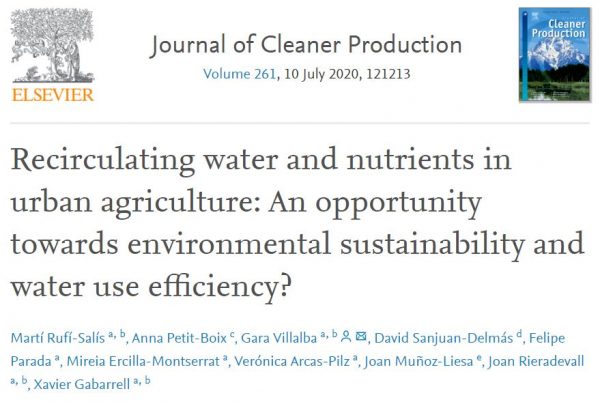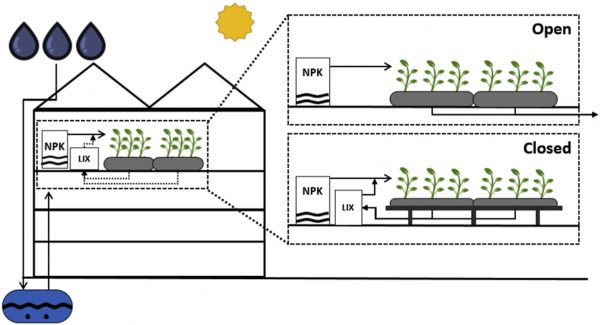New publication in Journal of Cleaner Production
26 March 2020
See full article: https://doi.org/10.1016/j.jclepro.2020.121213
Urban agriculture systems, such as rooftop greenhouses, are attractive alternatives for mitigating the impacts of the extensive food supply chains that currently feed cities. In this study, we study the opportunity that nutrient recirculation offers to improve the environmental performance of agricultural systems. In particular, we analyze the environmental burdens of a hydroponic closed-loop production system that recovers nutrients and reduces water demand by recirculating the irrigation water leaching from the substrate bags along with nutrients that have not been assimilated by the plant. The closed-loop system is compared to a linear system in which there is no nutrient or water recovery. Based on two green bean crop cycles in a Mediterranean rooftop greenhouse, we analyze the yield, climatic variables and water and nutrient balances, and apply life cycle assessment (LCA) to study the environmental impacts.
The results of this study indicate that closed-loop systems save daily 40% of irrigation water and between 35 and 54% of nutrients. Moreover, leachate reuse leads to reduced eutrophication impacts, but it can entail nutrient deficiencies. However, implementing a closed-loop system requires additional infrastructure causing larger impacts than linear systems in terms of global warming and fossil resource scarcity. The results of the LCA were highly sensitive to the yield, the crop production period and the meteorological conditions. Based on these results, we design improved scenarios, providing recommendations for reducing the impacts of closed-loop systems for more sustainable cities.
